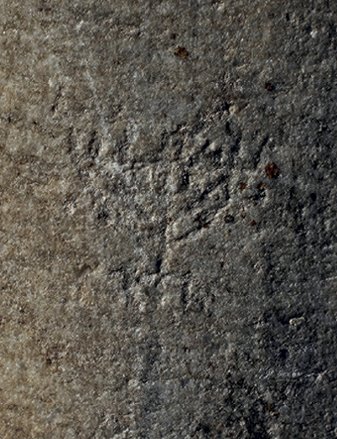
Ephesus, an ancient Greek city located in present-day Turkey, stands as a testament to the rich tapestry of cultures and religions that intermingled in the ancient Greek and Roman world. Among the diverse religious communities that thrived in Ephesus, such as Paganism and Christianity, Judaism held a significant place. This article explores the fascinating history of Judaism’s arrival and rise in Ephesus, shedding light on the religious and cultural interactions that shaped this ancient city.
The statement “You sold the people of Judah and Jerusalem to the Greeks to alienate them from their lands” in the book of Joel (3:6), which is thought to date back to the 6th century BC, is shown as evidence that Jews came to Western Anatolia as slaves. It is known that a large Jewish community lived in the ancient city of Sardis near Salihli in the 5th century BC.
The migration of Jewish tribes from Palestine to Anatolian lands can be traced back to approximately the sixth century BC, and this trend increased, especially after the destruction of Jerusalem by the Romans. In addition to the Eastern regions, Jews left traces of civilization in Cappadocia and especially in the Aegean and Western Mediterranean coasts. Greek and Romaniot Jews (a people of the Eastern Roman Empire) contributed to the administration of many ancient cities such as Ephesus, Miletus, Aphrodisias and Andriake, and lived in constant communication with the local people without becoming introverted.
Did you see the etrogs of Ephesus? – Click to see etrog symbols in Ephesus!
Ephesus in Antiquity
Ephesus, going back to the 10th century BCE, flourished as a major port city and commercial hub in the ancient Mediterranean world. It eventually became part of the Roman Empire in 129 BCE, experiencing remarkable growth and prosperity under Roman rule. We might say that Ephesus had its golden era under the Roman Empire’s rule. The city was renowned for the Temple of Artemis, one of the Seven Wonders of the Ancient World, and its magnificent theater, which could accommodate around 25,000 spectators. You can still see the ruins of the Temple of Artemis and the grand theater while having your Ephesus tour.
Judaism in the Diaspora
By the time Ephesus became a part of the Roman Empire, the Jewish diaspora was well underway. Jews had settled in various regions including Ephesus, adapting to local cultures while preserving their religious identity. In Ephesus, Jews established a vibrant community, contributing to the city’s cosmopolitan atmosphere. They engaged in trade, crafts, and other professions, enriching the economic and cultural landscape of Ephesus. It is known that the Jewish community in Ephesus sent contribution money to the Jerusalem Temple.
Did you see the menorahs of Ephesus? – Click to see menorah symbols in Ephesus!
Synagogues in Ephesus
Evidence of Jewish presence in Ephesus can be found in several ancient texts, including the Holy Bible. These synagogues served as not only places of worship but also as centers for communal gatherings, education, and legal matters. The architecture and inscriptions found in these synagogues reveal the unique blend of Jewish traditions with local artistic styles.
”Paul entered the synagogue and spoke boldly there for three months, arguing persuasively about the kingdom of God”
ACTS 19:8
Judaism and Early Christianity
Ephesus also played a crucial role in the early spread of Christianity. The Apostle Paul’s two visits to Ephesus are well-documented in the New Testament. His interactions with the Jewish community of ancient Ephesus and his teachings in the city contributed to the growth of early Christian groups. The relationship between Judaism and emerging Christianity in Ephesus was complex, marked by both cooperation and sometimes tensions, reflecting the larger dynamics between these two faiths in the ancient world.
Decline and Legacy
With the decline of the Roman Empire, the abandonment of Ephesus, and the rise of Christianity as the dominant religion, the Jewish community in Ephesus faced challenges. Ephesian Judaism began to fade, and Jewish presence in the city diminished over time. However, the legacy of Judaism in Ephesus lives on through archaeological discoveries (Menorahs in Ephesus) and historical records (Synagogue in Ephesus), providing valuable insights into the religious and cultural exchanges that shaped this ancient city.
The story of Judaism in Ephesus is a testament to the resilience of religious communities in the face of cultural and political changes. The Jews of Ephesus, through their interactions with diverse cultures and religions, contributed to the unique tapestry of this ancient city. Their legacy continues to inspire scholars and enthusiasts alike, offering a glimpse into the rich and complex history of religious coexistence in the ancient world. Ephesus stands as a reminder of the enduring connections that bind humanity.
Hire A Tour Guide For Ephesus Tour
Ephesus, being a trade and culture hub of the ancient Roman world, offers a great diversity of cultures and religions. Contact me to hire a professional tour guide for an Ephesus tour and learn more about the great history of the Hebrew people of Ephesus!